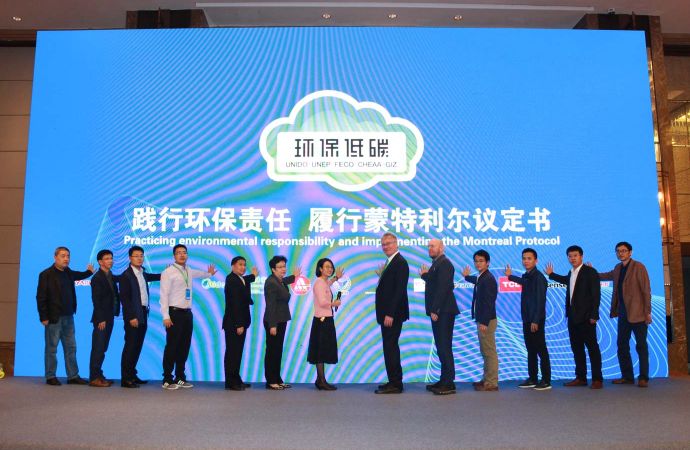Thanks to positive experiences with R600a and CO2, Eekenhof plans to change all of its cooling equipment to natural refrigerants, in line with its sustainability focus.

German store, Eekenhof switches to NatRefs.
In line with its focus on sustainability, Eekenhof, a small organic-farm store in Varel, Germany, is planning to change all of its cooling equipment to natural refrigerants, thanks to its positive experiences with isobutane (R600a) and CO2 (R744).
This Eekenhof story was shared by the EU-funded RefrigerantsNaturally4LIFE (RefNat4LIFE!) project, which is promoting case studies of successfully implemented natural refrigerant installations in small, organic-retail applications.
“Since Eekenhof considers sustainability as a very high priority, switching to natural refrigerants became an area of focus some years ago already,” said Klaus Leiter, who owns the farm on which the store resides and the store.
The high GWP of the HFC refrigerants in some of the store’s systems are using, as well as the rising prices of HFCs like R134a, were key motivating factors for upgrading the cooling systems, he said.
Established in 1750, the Eekenhof farm has been owned by the same famiy since 1860. Leiter took over the farm in 1988 and started farming organically the following year. He added a grocery shop for organic products in 1994.
The shop today has 14 employees and supplies around 2,500 fresh and dry products, with about 20% of sales from regional products. It offers delivery of fresh fruit and/or vegetable boxes for individuals, primary schools, and companies.
The shop initially occupied only 70m2 (753.5ft2), and was equipped with two cold storage units and a cheese bar, supplied by one cooling system, and a few stand-alone fridges. In 2014, Leiter expanded the shop to 120m2 (1,291.7ft2) area, adding a multi-deck merchandiser with doors, supported by the cooling system.
In 2016, he added a second cooling system to support a deep-freeze multideck; he also installed an ice cream freezer, a single swing-door cooler, a cake-cooling counter and a stand-alone freezer, the last three running on R600a.
In 2017, Leiter installed a cooling cabinet and three rooms (total size 62.5m2/ 672.7ft2) in a separate building to store fresh vegetables produced on the farm. Each room’s temperature is adjustable, depending on the product stored. The new system runs on CO2 and works well with no problems so far, according to Leiter.
CO2 preferred
His positive experiences with R600a (since 2013) and CO2 (since 2017) convinced Leiter to switch all cooling equipment from fluorinated gases to natural refrigerants (preferably CO2) in 2020. Unfortunately, the COVID-19 pandemic has delayed the process until 2021.
The plan is to install a new natural refrigerant based system that handles both cooling and freezing needs. An integrated heat recovery system will be included to accommodate the heating needs of the people living on the farm.
The farm also has a photovoltaic (PV) solar system, built in 2010, which produces around 29,000kWh/year – about 15,000kWh used directly. Around 50% of Eekenhof’s total annual energy consumption is for cooling needs.
See the Belgium Bio-Planet case study previously shared as part of this project
To download this and other natural refrigerant case studies, as well as related reports, visit the RefNat4Life website.
Related stories



